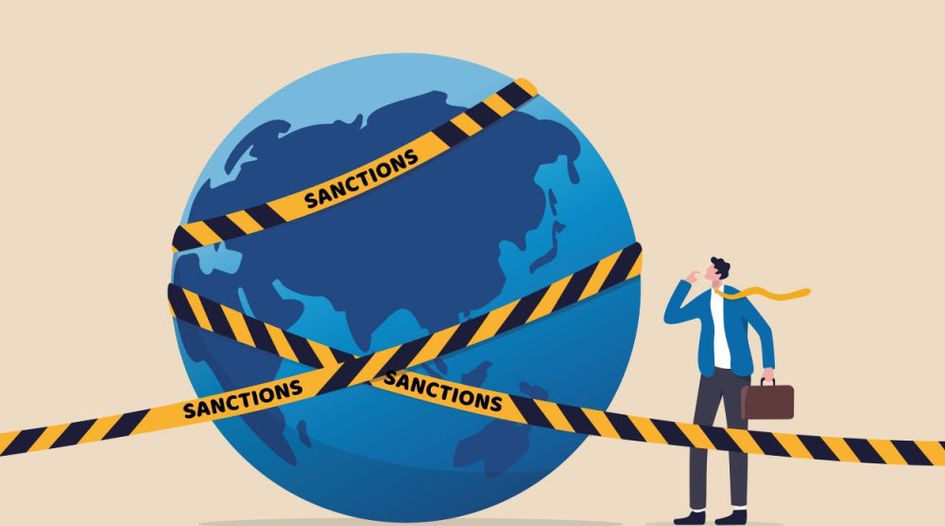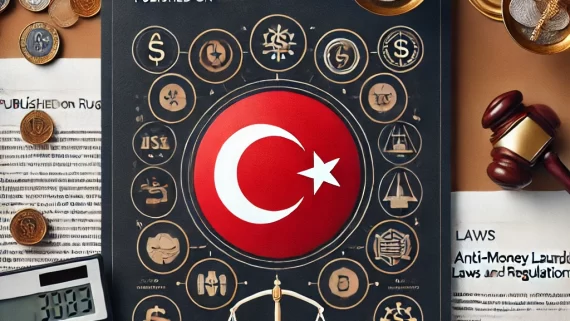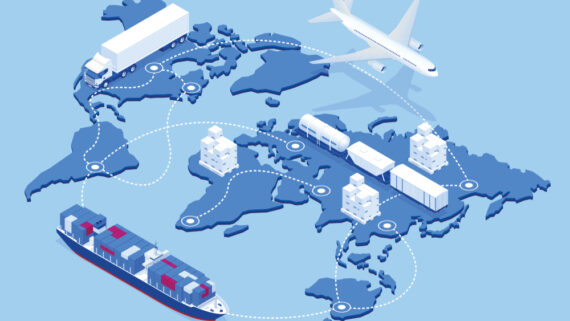International sanctions and export control regulations play a crucial role in promoting global security, restricting the transfer of sensitive goods, and preventing the misuse of military and dual-use technologies. For Turkish businesses engaged in international trade, compliance with these regulations is essential to avoid severe penalties and maintain strong relationships with global partners. Sanctions may involve trade restrictions, asset freezes, and other measures, while export controls govern the cross-border transfer of controlled items. Navigating these laws is particularly challenging due to Turkey’s strategic position and complex trade relationships. Bicak Law Firm provides comprehensive services to help Turkish companies understand and comply with both local and international sanctions and export control laws. From compliance program development to due diligence and export licensing, Bicak offers customized support that mitigates risks and strengthens legal standing. In cases of potential violations, the firm also provides robust representation and defense strategies. By partnering with Bicak, Turkish businesses can ensure compliant, responsible operations and contribute positively to the global security landscape.
International Sanctions and Export Control in Turkey
In an interconnected global economy, international sanctions and export controls are essential tools for maintaining global peace, security, and stability. Sanctions, which involve restrictive measures against countries, organizations, or individuals, and export controls, which regulate the transfer of sensitive goods and technologies across borders, are both pivotal for countering threats like terrorism, human rights abuses, and the proliferation of weapons of mass destruction. For Turkey, a strategically positioned nation with an increasingly globalized economy, adherence to international sanctions and export control regimes is crucial in upholding its global commitments and maintaining strong relations with key trading partners.
Sanctions are complex and multifaceted, serving various purposes that range from maintaining global security to promoting human rights and preventing the spread of military technologies. These restrictions are often imposed by international bodies, such as the United Nations or the European Union, or by individual countries, notably the United States. Sanctions can be applied through asset freezes, travel bans, trade restrictions, and other measures that impact the targeted entities. For Turkish businesses operating internationally, compliance with these sanctions is critical, as violations can lead to severe legal and financial consequences, as well as damage to their global reputation.
Export control regulations, on the other hand, focus on the cross-border transfer of controlled goods, technology, and services, especially those that may have military applications. These regulations involve licensing requirements, end-user restrictions, and due diligence obligations to prevent the unintended use of exported items for unlawful purposes. As Turkey continues to expand its footprint in sectors like manufacturing, defense, and technology, Turkish businesses must navigate export controls that are often multilayered and involve compliance with both national and international standards.
Given Turkey’s role as a bridge between Europe, the Middle East, and Asia, Turkish companies frequently engage in transactions across multiple jurisdictions, making compliance with various international sanctions and export control laws particularly challenging. Law firms play a vital role in guiding businesses through these complexities, helping them establish compliance programs, conduct due diligence, and understand the intricate legal requirements across different regions. This expertise is especially important as Turkish businesses increasingly face scrutiny from both domestic authorities and foreign regulatory bodies concerned with sanctions and export control compliance.
This article delves into the core components of international sanctions and export controls as they apply in Turkey. It begins by examining the types and purposes of sanctions and proceeds to explore export control regulations, emphasizing the need for compliance. We will also discuss the critical role that law firms play in helping Turkish companies navigate these areas, ensuring that they fulfill their international obligations while protecting their interests in a global market. Through a comprehensive understanding of sanctions and export controls, Turkish businesses can continue to operate responsibly and sustainably within the parameters of international law.
What Are Sanctions?
Sanctions are restrictive measures imposed by one or more countries or international organizations to influence the behavior of another country, organization, or individual. They are a powerful tool of foreign policy used to address security threats, human rights abuses, or other serious violations of international norms. Sanctions aim to alter the target’s behavior by creating economic, political, or diplomatic pressures.
Sanctions can be broad or targeted, depending on the goals and the entities involved. Here are the primary types of sanctions:
Economic Sanctions: These involve restrictions on trade, investment, or financial transactions with the target country or entity. Economic sanctions can take various forms, such as asset freezes, restrictions on banking activities, and limitations on exports or imports of goods and services.
Trade Sanctions: Often applied to specific sectors or products, trade sanctions prohibit or restrict the sale or transfer of goods, services, and technology to the target. Examples include restrictions on selling arms, nuclear technology, or high-tech equipment that could enhance the target’s military or economic power.
Financial Sanctions: Financial sanctions restrict access to financial resources and markets. These may include freezing assets held by sanctioned individuals or entities and prohibiting financial transactions with targeted institutions. Financial sanctions aim to cut off funding sources that could enable the target’s undesirable activities.
Travel and Visa Restrictions: Travel sanctions restrict movement by denying entry or transit through certain countries for specific individuals. This type of sanction is often applied to political leaders, military personnel, and other individuals deemed responsible for human rights abuses, terrorism, or other violations.
Diplomatic Sanctions: These sanctions limit or sever diplomatic relations, including the withdrawal of ambassadors or the suspension of membership in international organizations. Diplomatic sanctions are primarily symbolic but can signal a severe disapproval of the target’s behavior.
Military Sanctions: Imposed to limit a country’s military capabilities, military sanctions can prohibit arms sales or restrict access to dual-use goods—items that can serve both civilian and military purposes. Military sanctions are often applied to countries involved in conflicts or accused of violating international law.
Sanctions are commonly applied by international organizations such as the United Nations, regional bodies like the European Union, or individual countries, with the United States being one of the most prominent sanctioning entities.
Sanctions serve as a critical tool in international relations, employed to address a variety of global issues without resorting to military intervention. They are designed to influence the behavior of targeted states, organizations, or individuals by imposing economic, political, and diplomatic pressures. While sanctions aim to achieve specific policy objectives, they can have wide-ranging impacts, both intended and unintended. Here’s a closer look at the purposes and impacts of sanctions:
Purposes of Sanctions
Maintaining Global Security and Stability: One of the primary objectives of sanctions is to address threats to international peace and security. Sanctions are frequently imposed to deter activities that could destabilize regions or escalate conflicts. For example, sanctions may be used to prevent nuclear proliferation by restricting access to technology and materials that could be used to develop nuclear weapons.
Combating Terrorism: Sanctions target individuals, organizations, and states that support or engage in terrorist activities. By cutting off financial resources and restricting travel and trade, sanctions aim to hinder the operations and growth of terrorist networks. For example, the United Nations and individual countries regularly impose sanctions on groups linked to terrorism, like ISIS or Al-Qaeda.
Promoting Human Rights and Democracy: Sanctions are often used to pressure governments or leaders accused of human rights abuses or undemocratic practices. By isolating these actors economically or diplomatically, sanctions seek to incentivize political reform and protect human rights. Sanctions targeting human rights violations may include travel bans, asset freezes, and restrictions on access to financial markets.
Preventing the Proliferation of Weapons of Mass Destruction (WMDs): Sanctions aim to limit the spread of WMDs by targeting countries and organizations involved in their development, production, or distribution. These sanctions often focus on restricting the trade of dual-use technologies, as well as arms embargoes that prevent sanctioned countries from obtaining the materials needed for nuclear, chemical, or biological weapons.
Protecting International Law and Norms: Sanctions are used to uphold international standards and norms, including respect for sovereignty, territorial integrity, and compliance with international treaties. When a state violates international law, such as through an illegal invasion or occupation, sanctions can serve as a non-military response to reaffirm global standards and pressure the offending state to comply.
Impacts of Sanctions
Economic Impact on Targeted Entities: Sanctions can lead to significant financial losses for the targeted country, organization, or individual. Trade restrictions may reduce export revenues, financial sanctions can cut off access to global markets, and asset freezes prevent entities from using their funds. Over time, these economic impacts can create severe hardship for the targeted entities, weakening their ability to carry out undesirable activities.
Political Pressure on Governments: Sanctions place political pressure on targeted governments by isolating them diplomatically and economically. This isolation can generate internal pressure from political elites or the public, potentially incentivizing leadership changes or policy shifts. However, in some cases, governments may respond to sanctions with increased nationalism or authoritarian measures to maintain control.
Humanitarian Impact on Civilian Populations: While sanctions are primarily directed at governments or organizations, they can inadvertently impact civilian populations by causing shortages of essential goods, reducing employment, and limiting access to financial services. These hardships may be especially severe when sanctions restrict access to food, medicine, or other vital supplies, raising ethical concerns about the broader consequences of sanctions.
Potential for Strengthening Illicit Activities: In some cases, sanctions can inadvertently drive targeted entities to engage in illicit or black-market activities to bypass restrictions. For example, sanctioned countries may turn to smuggling or establish covert trade networks to acquire prohibited goods. Sanctions may also lead to the growth of informal markets, where illicit actors profit by providing restricted goods and services.
Global Economic and Diplomatic Consequences: Sanctions often impact not only the target but also the economies of other countries involved in trade or investment with the sanctioned entities. For instance, companies and investors from third-party countries may suffer financial losses when they are unable to do business with the target. Additionally, sanctions can strain diplomatic relations, especially when there is disagreement over the legitimacy or scope of the sanctions.
Unintended Strengthening of Domestic Resilience: Paradoxically, sanctions may sometimes lead to the strengthening of domestic industries within the targeted country. In response to sanctions, some governments implement policies to foster self-sufficiency, boosting local production and reducing reliance on foreign goods. While sanctions can impose economic hardship, they may also spur innovation and resilience in the targeted nation over time.
Sanctions are a complex and multifaceted tool, balancing the need to address serious international issues against the potential for unintended consequences. By carefully considering the purposes and impacts of sanctions, governments and international organizations aim to ensure that sanctions serve as an effective means of promoting peace, security, and respect for international law, while minimizing harm to civilian populations and unintended repercussions on global markets
Export Control
Export control regulations govern the transfer of certain goods, technologies, and services across borders, especially those that could be used for military or dual-use purposes (items that have both civilian and military applications). These controls are critical for national and international security, as they aim to prevent the proliferation of weapons of mass destruction, restrict access to advanced technologies by hostile entities, and safeguard sensitive information. For businesses involved in international trade, understanding and complying with export control regulations is essential to avoid significant legal and financial risks.
Key Aspects of Export Control
Controlled Goods and Technology: Export controls regulate items classified as “controlled goods” due to their potential for military or dual-use applications. These include not only physical products but also technical data, software, and know-how. Examples of controlled items range from weapons and high-tech electronics to software and chemicals that could be used in missile development. Governments create detailed lists of controlled items, which businesses must consult before exporting.
Export Licensing Requirements: Many items cannot be exported without a proper license. Governments typically issue licenses for exports involving controlled goods or to restricted regions. The licensing process may involve submitting detailed information about the end-use and end-user of the item, which is then evaluated by government agencies. In the U.S., for instance, the Bureau of Industry and Security (BIS) handles licenses for most dual-use items, while the Directorate of Defense Trade Controls (DDTC) oversees licenses for military goods and services.
End-User and End-Use Restrictions: Export control regulations often require businesses to verify the end-user and the intended use of their products or technology. This step ensures that controlled items are not diverted to unauthorized parties or for prohibited uses, such as military activities or weapons development. Companies are expected to conduct thorough due diligence, including background checks on customers and intermediaries, to confirm that their exports will not contribute to illicit activities.
Destination-Specific Controls: Some countries or regions are subject to stricter export controls due to political or security concerns. For example, exports to countries under sanctions, such as North Korea or Iran, are often heavily restricted or entirely prohibited. Certain regions may also have restrictions on specific categories of goods, such as advanced technology or military-grade equipment, to limit the risk of these items being used for hostile purposes.
Re-Export Controls: Re-export controls extend export control regulations beyond the initial export. These regulations govern items that are exported to a third country and then re-exported to another country. For example, if a U.S.-controlled item is exported to a European country, that European country may need to comply with U.S. re-export laws if it intends to transfer the item to another nation. This adds an extra layer of complexity, especially for multinational companies with global supply chains.
Export Control Compliance
Export control compliance is essential for companies engaged in cross-border trade, as violations can lead to severe penalties, including hefty fines, restrictions on future exports, and even criminal charges. Key compliance practices include:
Internal Compliance Programs (ICPs): Companies often implement Internal Compliance Programs tailored to export control requirements. An ICP typically includes training employees on export controls, establishing procedures for export screening, and conducting regular audits. An effective ICP ensures that export control considerations are integrated into the company’s operations, from initial sales to final delivery.
Export Screening: Screening processes help companies identify and address potential risks before an export occurs. Screening may involve checking whether a product requires an export license, verifying that the end-user is not on a restricted party list, and confirming that the destination is not under embargo. Many companies use automated software tools to facilitate export screening and ensure compliance.
Record-Keeping and Reporting: Export control laws generally require businesses to maintain detailed records of all export transactions, including licenses, end-use certificates, and communication with customers. Proper record-keeping is essential for compliance audits and can protect the company if questions arise about the legality of a specific transaction.
Voluntary Disclosures: If a company suspects it may have violated export control regulations, it can make a voluntary disclosure to the relevant authorities. Voluntary disclosure can mitigate penalties in some jurisdictions, as regulators may consider self-reporting a sign of good faith. However, it is essential to act quickly and provide full details of the violation when making a disclosure.
Implications for Turkish Businesses
In Turkey, export control regulations align with international standards, including those set by the Wassenaar Arrangement and the Missile Technology Control Regime. Turkish authorities, particularly the Ministry of Trade, oversee export controls to ensure compliance with international obligations and national security requirements. Turkish companies involved in the export of controlled goods or technologies must be diligent in understanding both domestic regulations and international requirements, as many Turkish exports are bound for markets subject to strict export control laws, such as the United States or the European Union.
Export control regulations are critical for maintaining global security, and compliance is essential for businesses engaged in international trade. By understanding export control requirements, companies can avoid legal and financial risks while contributing to nonproliferation and security goals. With comprehensive compliance programs, due diligence, and a proactive approach to regulatory changes, businesses can navigate the complexities of export control and conduct international trade responsibly.
Crucial role of Law Firms
Law firms play a crucial role in helping clients navigate the complexities of sanctions compliance and enforcement. Sanctions laws and regulations are often intricate, constantly evolving, and can vary across jurisdictions. Law firms provide expertise, strategic advice, and legal representation to ensure that businesses, financial institutions, and individuals remain compliant, minimize risks, and handle enforcement actions effectively. Here’s how a law firm can assist with sanctions:
Sanctions Compliance Programs: Law firms can help organizations establish and maintain a robust sanctions compliance program. This involves assessing the client’s exposure to sanctions risks, implementing internal policies and procedures, and providing guidance on best practices to avoid inadvertent violations. Compliance programs often include regular training for employees, periodic audits, and the establishment of internal controls to monitor transactions and counterparties.
Due Diligence and Risk Assessment: When conducting international transactions, mergers, or partnerships, law firms can perform thorough due diligence to identify potential sanctions-related risks. This may include vetting business partners, reviewing financial transactions, and screening for connections to sanctioned countries, entities, or individuals. Due diligence ensures that the client can proceed with confidence, mitigating risks of inadvertent sanctions violations.
Advising on Transactions and Business Activities: Law firms assist clients by analyzing whether specific transactions or business activities are permissible under applicable sanctions regimes. For instance, in sectors like banking, energy, or technology, law firms provide guidance on whether certain exports, imports, or financial transactions are allowed. They also help assess risks of dealing with sanctioned countries or entities, ensuring that the client complies with all legal requirements.
Obtaining Licenses and Permits: In cases where a transaction is subject to sanctions but may be eligible for an exception or license, law firms can help clients apply for the necessary licenses from relevant government authorities. For example, in the U.S., law firms can assist in obtaining licenses from the Office of Foreign Assets Control (OFAC) for permissible transactions with sanctioned entities. The application process can be complex, and legal expertise helps streamline and improve the likelihood of obtaining approval.
Responding to Sanctions Violations and Enforcement Actions: When clients face potential sanctions violations or enforcement actions, law firms provide essential legal representation. This may involve negotiating with regulatory authorities, responding to subpoenas or requests for information, and defending clients in administrative or court proceedings. Law firms work to minimize penalties, negotiate settlements, and resolve the issues while protecting the client’s interests and reputation.
Cross-Border Sanctions Advice: Sanctions laws vary by jurisdiction, and many businesses operate across multiple countries. Law firms provide cross-border sanctions advice to help clients understand and comply with different sanctions regimes, such as those imposed by the United Nations, the United States, the European Union, and other countries. Cross-border advice is crucial for multinational companies to avoid conflicting regulations and ensure compliance in all operating jurisdictions.
Training and Education: To promote a culture of compliance, law firms often provide customized training programs for client employees, focusing on sanctions compliance, export controls, and best practices for monitoring high-risk transactions. Regular training sessions help employees identify and address potential sanctions risks in real time, reducing the likelihood of inadvertent violations.
Export Control Compliance: Export controls often go hand-in-hand with sanctions, as they restrict the trade of certain goods, services, and technologies that could have military or dual-use applications. Law firms assist clients in understanding export control requirements, screening goods and services, and ensuring compliance with export laws and regulations. This is especially critical for clients in sectors like technology, manufacturing, and defense.
Assisting with Voluntary Disclosures: When a potential sanctions violation is identified, law firms can assist in voluntarily disclosing the issue to relevant authorities. Voluntary disclosure can sometimes lead to reduced penalties, as authorities may view self-reporting as a mitigating factor. Law firms guide clients through the disclosure process, preparing documentation, and handling communications with regulators to achieve a favorable outcome.
Monitoring and Interpreting Regulatory Changes: Sanctions regimes are dynamic and can change rapidly in response to geopolitical events. Law firms monitor sanctions developments, interpret regulatory changes, and update clients on new rules or restrictions that may affect their operations. Staying informed helps clients quickly adapt to regulatory changes, avoid penalties, and maintain compliant business practices.
In a rapidly evolving global landscape, sanctions compliance is critical to managing legal, financial, and reputational risks. Law firms provide the expertise, tools, and strategies necessary to navigate the complex sanctions environment, enabling clients to continue their business activities responsibly while avoiding the severe consequences of sanctions violations. With the help of experienced legal professionals, businesses can effectively address sanctions risks, pursue compliant growth, and contribute to global security objectives.
Supporting Turkish Businesses
As Turkish businesses increasingly engage in international markets, compliance with sanctions and export control regulations has become not only a legal necessity but also a key to sustaining their global competitiveness and protecting their reputations. Navigating these complex regulatory landscapes requires in-depth knowledge, strategic foresight, and an understanding of both local and international legal frameworks.
Bicak Law Firm stands at the forefront of helping Turkish companies meet the demands of sanctions and export control compliance. Our team is deeply versed in Turkish and international sanctions laws, as well as export control regulations affecting various sectors, from technology and defense to finance and logistics. With extensive experience in risk assessment, compliance strategy, and legal defense, Bicak Law Firm offers tailored solutions that empower clients to make informed, compliant decisions that align with their business goals.
Our services include assisting with compliance program development, conducting comprehensive due diligence and screening, obtaining necessary export licenses, and managing interactions with regulatory bodies. For clients facing potential sanctions violations or enforcement actions, Bicak Law Firm provides robust representation and guidance to minimize risks and achieve favorable outcomes. Our proactive approach not only mitigates legal and financial risks but also strengthens our clients’ global reputation as responsible, compliant business entities.
With a strong commitment to staying ahead of evolving regulations, Bicak Law Firm equips Turkish businesses with the tools and insights they need to navigate international sanctions and export control requirements effectively. By partnering with us, companies gain a trusted advisor who understands the nuances of both Turkish and international law, enabling them to thrive in a complex, ever-changing global marketplace. Bicak Law Firm is dedicated to supporting Turkish businesses in building compliant, resilient operations that contribute to their long-term success and security.
 English
English Türkçe
Türkçe Français
Français Deutsch
Deutsch










Comments
No comments yet.